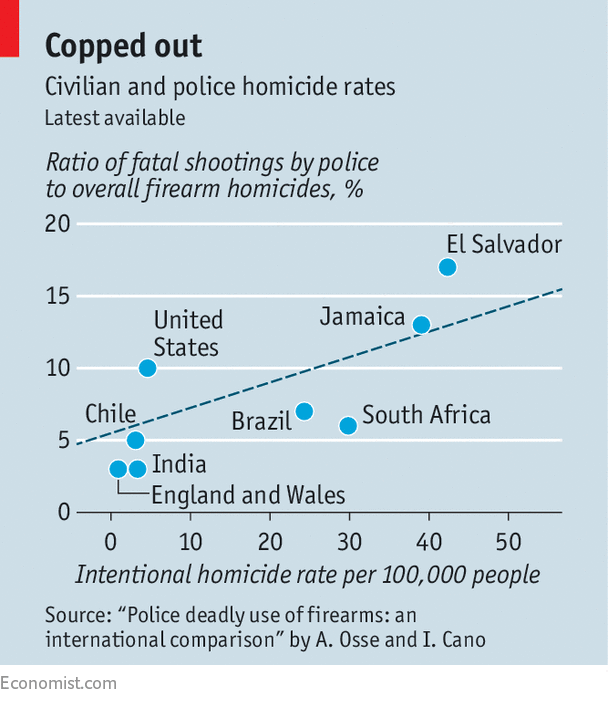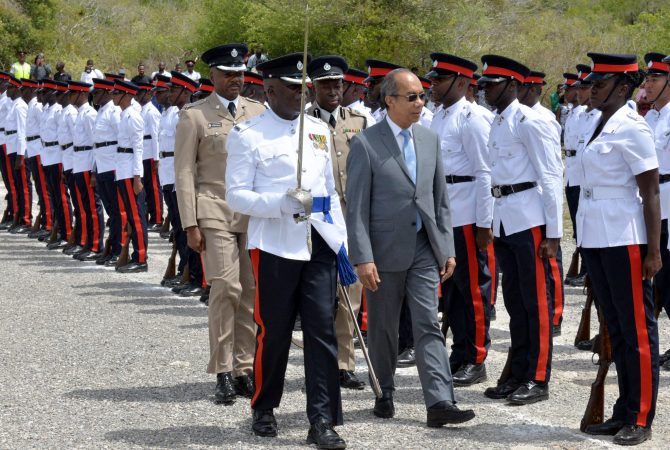Shante Skyers. Trisha Morris. Imani Green. Ananda Dean. Jamaican children whose lives were brutally cut short.
It’s a sad truth that children being murdered in Jamaica is not a new phenomenon. When Shaneka Shakes, 9, and her friend Shauna-Kay Ledgister, 8, were killed on their way home from school in 2005, there was public outcry much like these recent child killings. To date, however, no-one has been held accountable for their deaths.

Every time a child is murdered in Jamaica, we follow the same 9-day wonder routine and then it’s back to business as usual. For the families left behind, there’s rarely any closure. Only the burning question: Why can’t the police investigate these child killings with the same fervor as the Vybz Kartel murder case?
The resignation of Craig Dewar, the Forensic Evidence Advisor from the United States Embassy, over the JCF’s refusal to reform its operations should serve as a wake-up call to the entire country. Mr. Dewar cited his frustration with the JCF which seems reluctant to develop its forensic capabilities. Jamaica has a DNA Evidence Act but no DNA database. What the country does have is a very high crime rate and an even higher rate of police killings. An Amnesty International report lists Jamaica as having one of the highest rates of lethal police shootings in the world.
“The Jamaica Constabulary Force (JCF), approximately 7,000 strong, has been responsible for an average of 140 deaths per year in the last 10 years. This is almost five times the rate in South Africa — a country facing similar problems to Jamaica in terms of escalating levels of violent crime.”
Amnesty International Report (2001)
The police’s propensity to shoot first and ask questions later does not bode well for public confidence in the justice system. When policemen believe that killing a suspected criminal is better than neutralizing the threat and locking up the suspect it shows a lack of faith in the justice system. If the police don’t have faith in the system that they’re an integral part of then how can ordinary citizens trust said system?

Yet, for a country so besieged by its own police force, recent media polls show that a surprisingly high number of people (up to 90% according to TVJ) believe that giving away their rights is the only way to save us all. This despite the fact that history has shown that when we give up these rights, it doesn’t result in a decrease in crime but rather a rise in abuse by the state.
“Human rights organizations, lawyers and others have reported patterns of harassment and ill-treatment of individuals, predominantly young black men, by members of the security forces during curfews, searches and other emergency measures.”
Amnesty International Report (2001)
Police kill children too. The names of Janice Allen, 13, and Vanessa Kirkland, 16, have long been forgotten by most of us. But not by their family members. Then there’s the case of Michael Gayle, a young mentally ill man who was beaten to near death by soldiers and police during a curfew in Olympic Gardens. He died of his injuries two days later.
We can continue to urge the government to take away our rights until you or someone close to you is arrested on the way to work and held in a filthy jail cell for a week. Let ZOSO take over your community until your family member is ‘accidentally’ shot dead. Embrace a SOE until police beat your child to near death and plant a weapon in his hand to justify why he deserved it.

“Amnesty International believes that the problems of lack of public trust in the police and the JCF’s inability to prevent violent crime are closely related. The authorities repeated calls for the public to aid the police will not be heeded if the police continue to beat and kill with impunity.”
Amnesty International Report (2001)
Whether its Jamaica, Brazil or South Africa, a high crime rate is a symptom of a deeper problem. Tackling the symptom without treating the root causes only causes it to fester. The fact that crime increased after the SOE ended in St. James would seem to indicate that it was merely a band-aid on a much deeper problem. The Andrew Holness-led government reinstating it shows a troubling unwillingness to explore measures that can tackle these problems long term.
After two decades of following both the Peoples National Party and Jamaica Labour Party flip-flopping on crime, I’m forced to conclude that no one in either of these two political parties is sincere about tackling crime and its underlying issues. Our police force is corrupt beyond measure and has been for decades. Many government agencies are rife with corruption and those who follow the rules are punished with higher taxes and fees. This is may be some people’s idea of prosperity but for me, it’s not the Jamaica where Jamaicans with ambition can live and work with any optimism about the future.